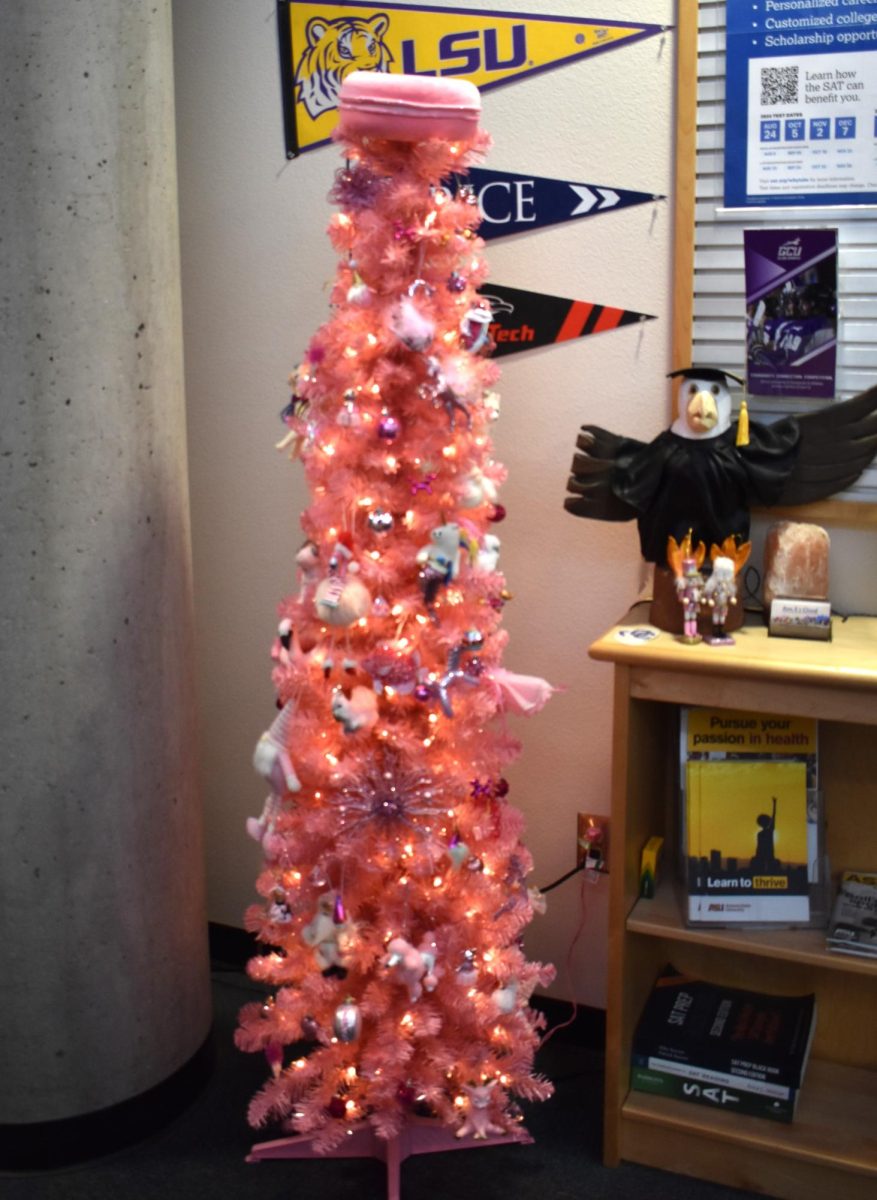As wintertime nears, OHS students share different beliefs regarding religion, and how each might relate to the holiday of Christmas. Practicing religions such as Buddhism, Islam, Christianity, Judaism, and Hinduism, each student at OHS may have a contrasting idea of the meaning of Christmas, whether they celebrate it or not. Several students and their families do not believe in Christmas’ original meaning, but still choose to celebrate it out of popularity.
Over the years, Christmas has been heavily commercialized. As a result, more people have become immersed in other aspects of the modern holiday rather than celebrating the intended meaning.The giving and receiving of gifts from loved ones, family dinners, and depending on religion, a church service, are all a part of the holiday.
“It can be about being with your family and friends. It doesn’t have to be about religion,” said Shloka Nair, junior.
Many Hindu families celebrate the holiday so they can spend time with family and enjoy good food together. Hindu families celebrate Christmas because they believe that it unites people from all over the world and spreads the significance of family. Americans believe that on December 25th, people can come together to spread love.
Holidays, especially Christmas, are about spending time with loved ones when our lives are so busy; it’s rewarding to slow down and have fun with family.
“Christmas is a time with family and friends and it’s about giving rather than receiving. I like to spend more time with them. Normally, it’s a way to step away from all of the work from the year,” Nair said.
It is important to recognize the familial aspect of Christmas even if people do not believe in a specific religion. Similarly, some Buddhists also celebrate Christmas. Some students at OHS believe in the culture of Christmas because the happiness of the holiday is shared globally.
“I used to get told Santa wasn’t real a lot,” said Jackson Yu, junior. “Eventually it came across as being fake.”
Many kids find it funny to tell other kids that parts of the holiday are made up. When one kid finds out Santa is not real the gossip spreads like wildfire.
“We have a shrine at home; we stay home and pray,” Yu said. “We leave food out for people who have passed.”
A part of his family’s religion is to honor their deceased loved ones. Staying home to pray to them is an important part of his Christmas. On the other hand, some students celebrate Christmas in their respective ways, along with an additional holiday, during Christmastime. Depending on a kid’s surroundings, getting to experience two different sides of Christmas impacts many student decisions.
“My mom grew up with a Christian background, and my dad and his whole entire family [are] Jewish,” said Lily Romirowsky, junior.
Getting to experience both religions growing up has had a huge impact on Romirowsky’s personal beliefs and how she views religion.
“By blood, I’m Jewish but religiously I’m Christian,” Romirowsky said.
While some students at OHS celebrate multiple holidays, or celebrate Christmas in various ways, some view Christmas, mainly, as the celebration of the birth of Christ.
“[At church], all of the junior high [students], college students, and adults come together to celebrate the birth of Jesus Christ,” said Kelsie Dennison, sophomore.
Being together with people of the same faith helps people to feel more comfortable within their religion, including Christianity. One of the best parts for Dennison is the celebration of Christ’s birth, remembering his message.
“Christmas should be more about giving and showing God’s love,” Dennison said.
For many the meaning of the holiday is more about the time to celebrate with family and friends than it is about religion. Although religion plays a big part, spending time with family is more sought after.
“A lot of my family from outside of the country gets time to come here or we get time to go there….That’s when I see my family the most,” Nair said.



